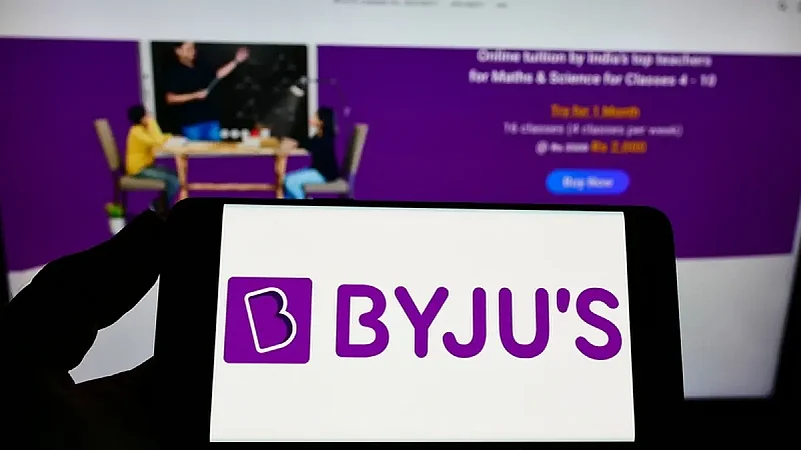Congress Member of Parliament Karti Chidambaram announced on his Twitter handle that he has written a letter to the Serious Fraud Investigation Office (SFIO) asking it to investigate the finances of edtech platform Byju's. He sought a probe into the unicorn's failure to file its FY 2020-21 financial results.
Byju's had earlier stated that it would file this by July 15, claiming that it was to secure $250 million capital from the funding round in March 2022. It had raised $800 million from Sumeru Ventures, Vitruvian Partners, and BlackRock, while Byju Raveendran, the company's Founder and CEO, had also made a personal investment of $400 million in this fundraise. The edtech major was last valued at over $22 billion.
In his letter, which he posted online, Chidambaram, a Lok Sabha MP for Sivaganga, alleged, "A report pointed out that Byju's filings with the Union Ministry of Corporate Affairs indicate that 16,031 Series F preference shares were allotted to Vitruvian Partners on March 29, 2022 for Rs 571 crore. There has been no such filling in the case of Sumeru Ventures or BlackRock since the company's announcement on March 17. This raises a question of the missing Rs 2,500 crore in the company's funding."
Chidambaram also noted that Byju's has not yet audited its financial statements for FY2020-21 from its auditor Deloitte and will take more time to file the cost audit report to the Ministry. "This is in clear violation of Rule 6(5) of the Companies (Cost Records and Audit) Rules, 2014. At a time when Byju's proposes to expand its business and acquire Nasdaq-listed company 2U at a valuation of $2.4 billion, while parallelly firing employees to cut costs, it becomes pertinent to review the company's finances," he said.
A Byju's spokesperson had earlier cited a lack of audit bandwidth, given its rapid growth and expansion plans, over the last two financial years.
Raising A Red Flag
This is not the first time Chidambaram has voiced his concerns about edtech companies. Last December, he questioned the quality of education and the qualification of teachers on online platforms in his Lok Sabha speech. Calling for oversight and regulation, he had stated that any educational institution that wanted to start operations needed a plethora of permissions, vetting curriculum, appointing staff of a certain calibre and paying them per certain regulations.
"But today, there are online educational companies worth billions of dollars. Some of them are worth even more than the entire educational budget of India. These companies offer online courses which nobody vets," he alleged. According to him, the content, quality or calibre of these courses, as well as that of their teachers, were unknown.
He also questioned the predatory marketing practices of edtech platforms like Byju's and WhiteHat Jr (which Byju's acquired). According to him, the employees of these companies used hard-selling tactics to convince parents to sign up for products and even take up loans to pay for these courses and study material.
In his statement in Parliament, Chidambaram had said, "Now, these companies are engaging in predatory marketing practices where they prey upon the aspirational poor people, who want to give their children a better education, who want to supplement their education which they are not getting in government schools."
In The Deep End
Byju's has garnered lots of unsavoury attention for the past few months. Recently, the company fired over 2,500 employees across its group companies as it sought to cut costs following a drop in demand for edtech services after two consecutive years of hypergrowth during the pandemic.
Moreover, it had to battle pushback from some parents who had purchased its courses but could not get refunds. Many of these aggrieved parties took to social media claiming they were compelled to make a purchase. A few even dragged the edtech to court for poor course material and education hardware quality.
Amidst complaints of misselling courses to consumers, the Ministry of Consumer Affairs recently pulled up edtech firms and self-regulatory organisation, India Edtech Consortium (IEC), on June 24, 2022.































